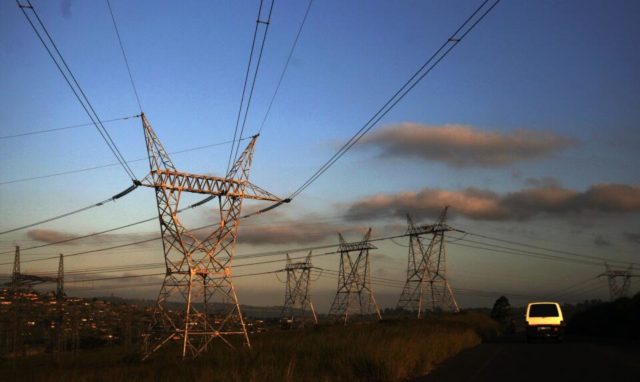Eskom has warned that electricity supply could be affected if wage talks reach deadlock as unions demand an up to 15 percent salary increase
ESKOM has warned that electricity supply could be affected if wage talks reach a deadlock as unions demand an up to 15 percent salary increase, a threat that would knock the struggling economy and dent investor confidence.
The power utility had urged all parties to put the country’s best interests first as wage talks with recognised labour unions were set to commence and end on June 3.
Eskom spokesperson Sikonathi Mantshantsha appealed to all the parties to do everything possible to avoid any unnecessary disturbances.
“If disruptions were to occur, these may have a negative impact on our infrastructure and operations, which may compromise our ability to supply electricity.”
Eskom will engage with the National Union of Mineworkers (NUM), the National Union of Metalworkers of SA (Numsa) and Solidarity to determine the conditions of employment and wages for all non-managerial employees.
Wage talks in South Africa are always unpredictable and could result in tensions arising now that the government has decided to freeze salary increases for the next three years.
Last year, at least 2,000 Eskom workers retired while others took voluntary severance packages as the utility began cutting back on its employee costs to improve its financial sustainability.
The power utility has a debt north of R460 billion and it needs to cut another 6,000 jobs to reduce its headcount from 44,000 workers to a right-sized number of 38,000 employees.
Currently, the government is embroiled in a dispute with public sector unions after they took it to court to challenge its decision to not honour the last leg of the 2018 three-year wage agreement.
The wage talks also come as rating agency Moody’s is expected to release a country review, with Kamilla Kaplan, an economist at Investec, saying on Friday that she did not believe South Africa would be downgraded yet.
Rating agencies have warned that the ailing state-owned electricity company presents material downside risks to public finances.
NFB Private Wealth Management’s Andrew Duvenage said the strike season, with wage negotiations now in full swing, could be the biggest risk to investor confidence.
“The continuous capitulation to unions will continue seeing the cost going up as the wage bill rises above inflation,” Duvenage said.
“The government has to make tough decisions whether political considerations of unions are above the country’s.”
NUM’s acting general secretary William Mabapa said the union had mandated the negotiating team to go all out and negotiate for good wages at Eskom.
“Housing allowance remains a thorn now that Eskom has changed the allowance into a fringe benefit and this has imposed unforeseen tax implications on workers who rent accommodation from Eskom,” Mabapa said.
“(We have) raised a concern about the expensive nature of the procurement of independent power producers and the impact of this in the national struggle to stabilise Eskom finances.”
The cost of power production was also a thorny issue that metalworkers union Numsa raised, including a one-year agreement, a 15 percent wage increase, as well as ending salary disparities.
Numsa spokesperson Phakamile Hlubi-Majola said Eskom’s biggest cost drivers were coal, renewable energy IPPs (Reipps) and the cost of diesel.
Hlubi-Majola said under the current conditions of hardship, Eskom could not allow primary energy costs increases of up to 20 percent per annum. “The Reipps have cost Eskom R22bn for the 2019 last financial year, or R2.35 per kilowatt hour,” she said.
“The prices in the ton of coal purchased per annum are increasing at a minimum of 14 percent. They will attempt to pretend that workers’ wages are the reason for their financial distress. That is a lie.”
– BUSINESS REPORT








